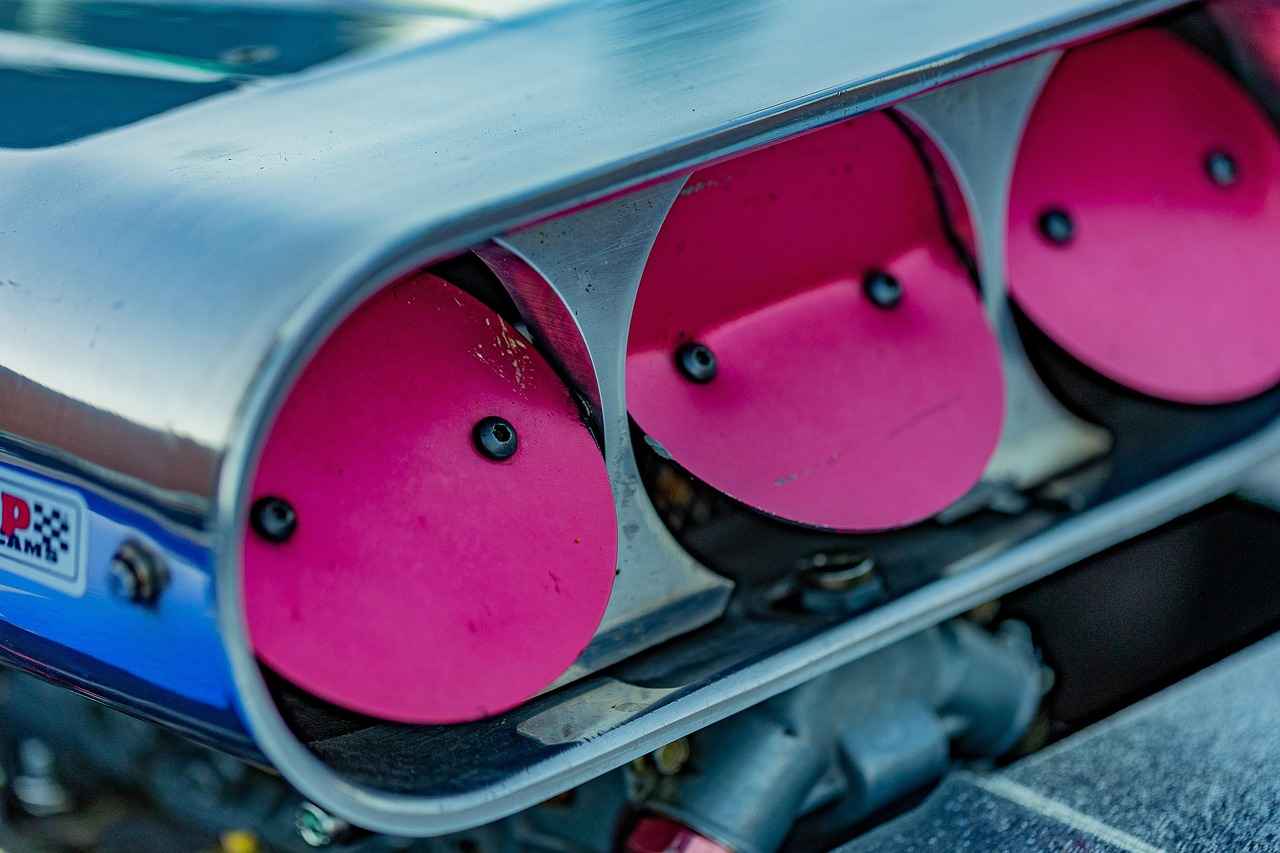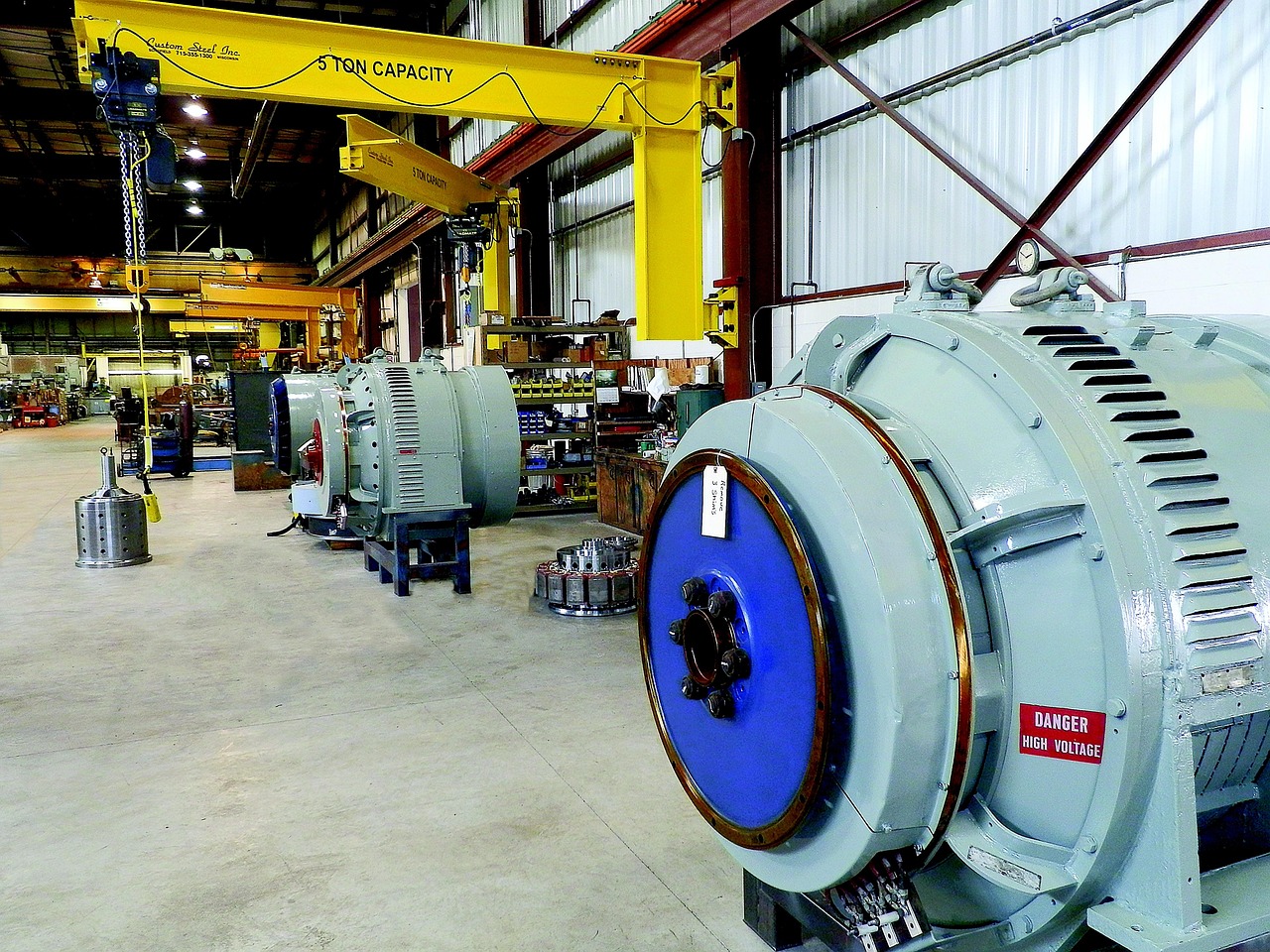Understanding the health of your air conditioning system is crucial, especially when it comes to the AC compressor. This article delves into the critical signs that indicate a failing AC compressor, offering homeowners valuable insights to help diagnose issues and ensure optimal air conditioning performance.
Identifying the early warning signs of a failing AC compressor can save you both time and money. Here are some primary indicators to watch for:
- Unusual Noises: Listen for any strange sounds, such as grinding or hissing.
- Reduced Cooling Efficiency: If your AC isn’t cooling as effectively, it may be a sign of compressor issues.
- Frequent Cycling: If your system turns on and off more frequently than usual, it could indicate a problem.
To recognize the signs of a failing compressor, it’s essential to understand its role. The AC compressor compresses refrigerant, allowing it to circulate through the system and cool your home effectively. A malfunction in this component can lead to significant issues.
The compressor’s primary function is to manage the flow of refrigerant. If it malfunctions, this process can be disrupted, resulting in inadequate cooling and potentially higher energy bills.
The refrigeration cycle involves several components: the compressor, condenser, expansion valve, and evaporator. A breakdown in this cycle can significantly affect your home’s cooling efficiency, making it essential to monitor the compressor’s health.
A failing compressor may cause refrigerant leaks, leading to low refrigerant levels. This situation can further damage the system and hinder cooling performance. If you notice any signs of a leak, such as ice buildup on the coils or a hissing sound, it’s crucial to address it immediately.
Mechanical problems within the compressor can manifest through various signs:
- Unusual Noises: Grinding or clanking sounds can indicate internal damage.
- Vibrations: Excessive vibrations may suggest a misalignment or other mechanical issues.
- Overheating: If the compressor is running hot, it could signal impending failure.
Listening for specific sounds can help diagnose compressor issues:
- Grinding Noises: This sound typically suggests that internal components are wearing down or damaged.
- Hissing Sounds: Often indicative of a refrigerant leak, this sound can compromise the compressor’s efficiency.
Testing your AC compressor can help confirm whether it is functioning correctly. Here are some methods:
- Visual Inspection: Look for signs of damage, corrosion, or leaks. Oil spots around the compressor may indicate refrigerant leaks.
- Electrical System Checks: Testing the electrical components, such as the capacitor and contactor, can help determine if electrical issues are affecting performance.
Knowing when to seek professional help is crucial for maintaining your AC system. If you notice persistent issues or cannot diagnose the problem, it’s best to consult an HVAC expert.
If your AC continues to struggle with cooling despite troubleshooting efforts, it may indicate a more serious compressor issue that requires professional intervention.
Evaluating whether to repair or replace a failing compressor can significantly impact your long-term costs. Consulting with professionals can provide insights into the most cost-effective solutions for your situation.

What Are the Common Signs of a Failing AC Compressor?
When it comes to maintaining a comfortable home environment, your air conditioning system plays a crucial role. One of the most vital components of this system is the AC compressor. Recognizing the early warning signs of a failing compressor can save you both time and money. In this section, we will explore the common signs that indicate your AC compressor may be on the verge of failure.
Identifying the early warning signs of a failing AC compressor can be essential for timely intervention. Here are some primary indicators to watch for:
- Unusual Noises: If you hear strange sounds coming from your AC unit, such as grinding, hissing, or clicking, it could indicate mechanical issues or refrigerant leaks.
- Reduced Cooling Efficiency: Experiencing warm air blowing from your vents, despite setting your thermostat to a low temperature, is a strong sign that your compressor may not be functioning properly.
- Frequent Cycling: If your AC unit frequently turns on and off, this could indicate that the compressor is struggling to maintain the desired temperature.
- Increased Energy Bills: A sudden spike in your energy bills may suggest that your AC system is working harder than usual, potentially due to a failing compressor.
- Visible Leaks: Check for any fluid pooling around the compressor. Refrigerant leaks can lead to inadequate cooling and should be addressed immediately.
Understanding these signs is crucial for timely action. If you notice any of these symptoms, it is advisable to seek professional assistance to diagnose and address the issue effectively.
The AC compressor plays a vital role in the refrigeration cycle by compressing the refrigerant and circulating it through the system. This process allows the refrigerant to absorb heat from your home and release it outside, effectively cooling the indoor air. When the compressor begins to fail, it can disrupt this cycle, leading to inefficient cooling and increased energy consumption.
Listening to your AC unit can provide valuable insights into its condition. Here are some specific noises to watch for:
- Grinding Noises: This sound typically suggests that internal components are wearing down or damaged, which may require immediate attention.
- Hissing Sounds: Often indicative of a refrigerant leak, hissing sounds can compromise the compressor’s efficiency and lead to more extensive repairs if not addressed promptly.
Testing your AC compressor can help confirm whether it is functioning correctly. Here are some basic checks you can perform:
- Visual Inspection: Look for signs of damage, corrosion, or leaks around the compressor. Oil spots can indicate refrigerant leaks.
- Electrical System Checks: Testing electrical components like the capacitor and contactor can help determine if electrical issues are affecting the compressor’s performance.
Knowing when to seek professional help is crucial for maintaining your AC system. If you notice persistent issues or cannot diagnose the problem, consulting an HVAC expert is advisable. Persistent cooling issues, despite troubleshooting efforts, may indicate a more serious compressor issue that requires professional intervention.
In summary, staying vigilant for the signs of a failing AC compressor can help protect your investment and ensure your home remains comfortable. If you suspect any problems, don’t hesitate to reach out to a qualified technician for assistance.

How Does the AC Compressor Function?
The air conditioning (AC) system plays a vital role in maintaining a comfortable indoor environment, especially during the sweltering summer months. At the heart of this system lies the AC compressor, a crucial component that significantly influences the efficiency and effectiveness of cooling. Understanding how the AC compressor functions can help homeowners identify potential issues and ensure their systems operate optimally.
The primary role of the AC compressor is to compress the refrigerant gas and circulate it through the system. This process is essential for cooling your home effectively. Here’s a breakdown of how it works:
- Compression of Refrigerant: The compressor takes in low-pressure refrigerant gas from the evaporator coil and compresses it into a high-pressure gas. This compression raises the temperature of the refrigerant, preparing it for the next stage of the refrigeration cycle.
- Refrigerant Circulation: Once compressed, the high-pressure gas flows to the condenser coil, where it releases heat absorbed from your home. This process transforms the gas back into a liquid state, which is then sent to the expansion valve.
- Cooling Your Home: The refrigerant, now a liquid, passes through the expansion valve, where it experiences a drop in pressure and temperature. This cooled refrigerant then travels to the evaporator coil, absorbing heat from the indoor air and cooling your living space.
A malfunctioning AC compressor can disrupt the refrigerant flow, leading to inadequate cooling and increased energy bills. When the compressor fails to operate correctly, it can result in:
- Inconsistent Cooling: If you notice that some rooms are cooler than others, this could indicate a problem with the compressor’s ability to circulate refrigerant effectively.
- Increased Energy Costs: A struggling compressor may cause your system to work harder, leading to higher energy bills.
- Short Cycling: If the compressor frequently turns on and off, it may be a sign of an underlying issue that needs to be addressed.
The refrigeration cycle is a continuous process involving several components, including the compressor, condenser, expansion valve, and evaporator. Each part plays a unique role in ensuring efficient cooling:
1. **Compressor** - Compresses refrigerant gas.2. **Condenser** - Releases heat from the refrigerant.3. **Expansion Valve** - Lowers the pressure of the refrigerant.4. **Evaporator** - Absorbs heat from the indoor air.
Any disruption in this cycle can significantly affect your home’s cooling efficiency. For instance, if the compressor fails, the entire system may struggle to maintain a comfortable temperature.
A failing compressor may lead to refrigerant leaks, which can cause low refrigerant levels and further damage the system. Signs of refrigerant leaks include:
- Ice Buildup: If you notice ice forming on the evaporator coil, it could indicate low refrigerant levels due to a leak.
- Hissing Sound: A hissing noise may suggest that refrigerant is escaping from the system.
- Inadequate Cooling: If your AC is not cooling effectively, low refrigerant levels may be the culprit.
In summary, understanding the function of the AC compressor is crucial for recognizing signs of potential failure. By being aware of the signs of a malfunctioning compressor and the role it plays in the refrigeration cycle, homeowners can take proactive steps to maintain their air conditioning systems and ensure consistent cooling throughout their homes.
Understanding Refrigerant Flow
Understanding the intricacies of your air conditioning system is vital for maintaining its efficiency and longevity. One of the most critical components in this system is the compressor, which plays a significant role in managing the flow of refrigerant. When the compressor is functioning correctly, it ensures that the refrigerant circulates smoothly, allowing your AC unit to cool your home effectively. However, when the compressor malfunctions, it can lead to a series of issues that not only affect the cooling efficiency but also increase your energy bills.
The compressor’s primary function is to compress the refrigerant, turning it from a low-pressure gas into a high-pressure gas. This process is essential for the refrigerant to flow through the entire air conditioning system. If the compressor is not working properly, it can disrupt this flow, leading to inadequate cooling. Homeowners may notice that their AC unit struggles to maintain a comfortable temperature, even when set to a low setting.
- Inconsistent Cooling: If certain rooms in your home are warmer than others, it may indicate a compressor issue.
- Increased Energy Bills: A malfunctioning compressor can cause the AC unit to work harder, leading to higher electricity costs.
- Unusual Noises: Grinding, hissing, or clicking sounds can indicate mechanical failure or refrigerant leaks.
The flow of refrigerant is crucial in the refrigeration cycle, which includes the compressor, condenser, expansion valve, and evaporator. When the compressor fails, it can cause a breakdown in this cycle, significantly affecting your home’s cooling efficiency. A disruption in refrigerant flow can lead to an increase in pressure, which may cause the system to shut down entirely to prevent damage.
Another issue that can arise from a failing compressor is refrigerant leaks. If the compressor is not functioning correctly, it may not contain the refrigerant effectively, leading to a drop in refrigerant levels. Low refrigerant levels can hinder the cooling performance of your AC unit and may cause further damage to the system if not addressed promptly.
Mechanical problems within the compressor can also manifest through various symptoms. Homeowners should be vigilant for:
- Unusual Vibrations: Excessive vibrations may indicate that the compressor’s internal components are failing.
- Overheating: If the compressor becomes too hot to touch, it may signal an impending failure.
If you suspect your compressor is failing, it is essential to seek professional assistance. A qualified HVAC technician can perform a thorough diagnostic to identify the issue. Ignoring the signs of a failing compressor can lead to more extensive repairs and increased costs down the line.
In summary, understanding refrigerant flow and the role of the compressor is crucial for maintaining your air conditioning system. By recognizing the signs of a failing compressor, you can take proactive steps to ensure your home remains cool and comfortable while avoiding unnecessary expenses.
The Refrigeration Cycle Explained
The refrigeration cycle is a fundamental process that enables air conditioning systems to provide cool air effectively. It comprises four essential components: the compressor, condenser, expansion valve, and evaporator. Understanding how these components work together is crucial for homeowners to maintain optimal cooling efficiency in their homes.
- Compressor: This is the heart of the system, responsible for compressing the refrigerant gas and raising its pressure, allowing it to circulate through the system.
- Condenser: Here, the high-pressure refrigerant gas releases heat to the outside air, condensing into a liquid as it cools down.
- Expansion Valve: This component regulates the flow of refrigerant into the evaporator, allowing it to expand and lower its pressure, which is crucial for cooling.
- Evaporator: In the evaporator, the refrigerant absorbs heat from the indoor air, cooling it before it is circulated back into the home.
When any component of the refrigeration cycle malfunctions, it can significantly impact your home’s cooling efficiency. For instance, a failing compressor can lead to insufficient refrigerant circulation, causing your air conditioning system to struggle in maintaining a comfortable temperature. Homeowners may notice symptoms such as:
- Inconsistent Cooling: Rooms may feel warmer than others, indicating that the system is not effectively distributing cool air.
- Increased Energy Bills: A malfunctioning system often works harder, consuming more energy and resulting in higher utility costs.
- Frequent System Cycling: If the compressor is not operating correctly, the system may turn on and off more frequently, leading to wear and tear.
A critical issue related to the refrigeration cycle is refrigerant leaks. These can stem from a faulty compressor or damaged lines. Symptoms of refrigerant leakage include:
- Low Refrigerant Levels: A drop in refrigerant can severely hinder cooling performance.
- Hissing or Bubbling Sounds: These noises often indicate that refrigerant is escaping from the system.
If left unaddressed, refrigerant leaks can lead to further damage and costly repairs. It’s vital to monitor your system for any signs of leakage and act quickly if they occur.
Mechanical problems can also arise within the components of the refrigeration cycle. Common indicators include:
- Unusual Noises: Grinding or clanking sounds may suggest internal damage to the compressor.
- Overheating: If the compressor is overheating, it may be working harder than it should, indicating a potential failure.
Regular maintenance and inspections can help catch these issues early, ensuring your air conditioning system runs smoothly.
To keep your air conditioning system functioning efficiently, consider the following maintenance tips:
- Regular Inspections: Schedule professional inspections at least once a year to identify and address potential issues.
- Clean or Replace Filters: Dirty filters can restrict airflow, making the system work harder.
- Monitor Refrigerant Levels: Ensure that refrigerant levels are adequate to maintain cooling efficiency.
By understanding the refrigeration cycle and its components, homeowners can take proactive steps to ensure their air conditioning systems operate efficiently and effectively.
Signs of Refrigerant Leaks
Understanding the importance of your air conditioning system is essential for maintaining a comfortable living environment, especially during the hot summer months. One critical component of this system is the AC compressor, which plays a vital role in the refrigeration cycle. However, when the compressor begins to fail, it can lead to a variety of issues, including refrigerant leaks. This article will delve into the , helping homeowners identify problems early and take action to prevent further damage.
Refrigerant leaks can occur for several reasons, often linked to the condition of the compressor and surrounding components. Common causes include:
- Corrosion: Over time, the metal components of the compressor can corrode, leading to tiny holes that allow refrigerant to escape.
- Mechanical Damage: Physical damage from external factors, such as debris or improper installation, can compromise the integrity of the compressor.
- Wear and Tear: As with any mechanical system, wear and tear can lead to the degradation of seals and gaskets, which can also result in leaks.
Being aware of the signs of refrigerant leaks is crucial for maintaining your AC system’s efficiency. Here are some key indicators to watch for:
- Reduced Cooling Performance: If your air conditioner is struggling to cool your home effectively, it may indicate low refrigerant levels due to a leak.
- Ice Buildup: Ice forming on the evaporator coils can signal low refrigerant levels, which can lead to further complications if not addressed.
- Unusual Noises: Hissing or bubbling sounds may indicate refrigerant escaping from the system, which is a clear sign of a leak.
- Increased Energy Bills: If you notice a spike in your energy costs without a change in usage, it could be due to your AC working harder to compensate for a refrigerant leak.
If you notice any of the signs mentioned above, it is essential to take action promptly. Here are steps you can follow:
- Turn Off Your AC: To prevent further damage, switch off your air conditioning system immediately.
- Conduct a Visual Inspection: Look for signs of oil around the compressor, which can indicate a refrigerant leak.
- Call a Professional: It’s best to consult an HVAC technician who can accurately diagnose the issue and perform necessary repairs.
Prevention is always better than cure. Here are some tips to help avoid refrigerant leaks:
- Regular Maintenance: Schedule regular check-ups with a qualified HVAC technician to ensure your system is in good working condition.
- Keep the Area Clear: Ensure that the area around your outdoor unit is free from debris and obstructions that could cause damage.
- Monitor System Performance: Pay attention to your AC’s performance and address any issues immediately to prevent leaks.
By being vigilant and proactive, you can help ensure that your air conditioning system remains efficient and effective, avoiding the costly repairs associated with refrigerant leaks and compressor failures.
Identifying Mechanical Issues
When it comes to maintaining your air conditioning system, understanding the mechanical issues that can arise within the compressor is crucial. These problems can lead to significant discomfort and costly repairs if not addressed promptly. In this section, we will delve deeper into the signs and implications of mechanical failures in your AC compressor.
Mechanical problems within the compressor can manifest in various ways, often serving as a warning sign of potential failure. Here are some key indicators to watch for:
- Unusual Noises: If you hear strange sounds, such as grinding, hissing, or clanking, it may indicate internal damage.
- Vibrations: Excessive vibrations can suggest that components are misaligned or damaged, which can lead to further issues.
- Overheating: If the compressor feels excessively hot to the touch, it may be working harder than necessary due to mechanical failure.
Understanding the root causes of mechanical failures can help you prevent them. Common reasons include:
- Lack of Maintenance: Regular maintenance is essential for identifying wear and tear before it leads to major issues.
- Dirty Components: Dust and debris can accumulate, causing the compressor to work harder and leading to overheating.
- Improper Installation: If the compressor is not installed correctly, it may experience undue stress, leading to mechanical failures.
If you suspect that your AC compressor is experiencing mechanical problems, it is important to take action:
- Perform Regular Inspections: Regularly check the compressor for signs of wear, including rust or leaks.
- Schedule Professional Maintenance: Engage an HVAC professional to conduct routine maintenance and address any concerns.
- Monitor Performance: Keep an eye on the cooling efficiency and listen for unusual sounds during operation.
While some minor mechanical issues can be addressed with basic troubleshooting, it’s crucial to know when to call in the experts:
- Persistent Noises: If unusual noises continue despite your efforts, it’s time to consult a professional.
- Increased Energy Bills: A sudden spike in your energy costs may indicate that your compressor is working inefficiently.
- Frequent Breakdowns: If your system frequently requires repairs, it may be more cost-effective to replace the compressor.
In conclusion, being vigilant about the mechanical health of your AC compressor can save you time, money, and discomfort. By recognizing the signs of potential issues and taking proactive steps, you can ensure that your air conditioning system operates efficiently and effectively.

What Noises Indicate a Bad AC Compressor?
When it comes to maintaining a comfortable indoor environment, your air conditioning system plays a crucial role. One of the key components of this system is the AC compressor, and any issues with it can lead to significant discomfort and increased energy costs. Understanding the sounds your AC unit makes can be a vital step in diagnosing potential problems. Below, we explore the various noises that may indicate a bad AC compressor.
Listening for specific sounds can help diagnose compressor issues. Grinding, hissing, and clicking noises are often signs of mechanical failure or refrigerant leaks. Here’s a closer look at these sounds and what they might mean for your system:
A grinding noise typically suggests that internal components of the compressor are wearing down or damaged. This sound can indicate that metal parts are rubbing against each other, which could lead to serious mechanical failure if not addressed promptly. Homeowners should take this sound seriously, as it often requires immediate attention from a qualified technician to prevent further damage and costly repairs.
Hissing sounds often indicate a refrigerant leak. This leak can compromise the efficiency of the compressor and lead to inadequate cooling. If you hear a hissing noise, it’s crucial to act quickly, as low refrigerant levels can cause the compressor to overheat and fail. A professional technician can perform a leak test and repair any issues found.
If you hear clicking noises coming from your AC unit, it may indicate an electrical issue or a malfunctioning component within the compressor. These sounds can occur when the system is trying to start but is unable to do so due to faulty wiring or a failing capacitor. Ignoring this noise can lead to more severe problems, so it’s advisable to seek professional help if this sound persists.
Buzzing sounds can also be a red flag. This noise often suggests that there is an electrical issue, such as a failing capacitor or a problem with the compressor’s motor. If the buzzing is accompanied by a failure to start, it’s critical to have the unit inspected to prevent further damage.
Rattling or clanking noises may indicate that there are loose or damaged components within the compressor. This could be anything from a loose screw to a failing part. If you hear these sounds, it’s essential to have a technician investigate the issue to avoid complete system failure.
- Immediate Inspection: If you notice any of these sounds, perform a quick inspection of your AC unit.
- Turn Off the System: To prevent further damage, turn off the AC system if you hear alarming noises.
- Contact a Professional: Always consult with an HVAC technician for a thorough diagnosis and repair.
In summary, being attentive to the noises your AC compressor makes can save you from costly repairs and ensure your system operates efficiently. If you notice any unusual sounds, it’s best to take action promptly to maintain the longevity and effectiveness of your air conditioning system.
Grinding Noises
When it comes to your air conditioning system, unusual noises can be a significant indicator of underlying issues. Among these, stand out as a particularly concerning sign. Understanding what these noises mean can help you take timely action to prevent further damage to your AC compressor.
Grinding noises typically occur when internal components of the compressor are wearing down or have sustained damage. This may be due to a lack of lubrication, which can cause metal parts to rub against each other, resulting in a grinding sound. Additionally, foreign objects may have entered the compressor, causing interference with its normal operation.
If you hear grinding noises, it is essential to address the issue immediately. Ignoring these sounds can lead to more severe problems, including complete compressor failure. A damaged compressor can not only be costly to repair but may also require a full replacement, which can significantly impact your budget.
To effectively diagnose the source of the grinding noise, homeowners can follow these steps:
- Visual Inspection: Look for any visible signs of wear or damage around the compressor.
- Listen Carefully: Pay attention to when the grinding noise occurs. Is it constant or intermittent?
- Check for Vibration: Excessive vibration can indicate internal issues within the compressor.
In addition to the grinding sound itself, other symptoms may accompany it. These include:
- Reduced Cooling Efficiency: If your AC isn’t cooling as effectively as it once did, it may be linked to compressor issues.
- Frequent Cycling: An AC unit that turns on and off more frequently than usual may indicate a compressor problem.
- Increased Energy Bills: A malfunctioning compressor can lead to higher energy consumption, reflected in your utility bills.
If you detect grinding noises from your AC compressor, follow these steps:
- Turn Off the System: Immediately shut down your AC to prevent further damage.
- Consult a Professional: Contact an HVAC technician to conduct a thorough inspection and diagnosis.
- Consider Maintenance: Regular maintenance can help prevent grinding noises and extend the lifespan of your compressor.
To avoid future occurrences of grinding noises, consider implementing the following preventive measures:
- Regular Maintenance: Schedule annual inspections to ensure all components are functioning correctly.
- Keep the Area Clean: Ensure that the area around your AC unit is free of debris and obstructions.
- Monitor Performance: Stay vigilant for any changes in your AC’s performance and address them promptly.
In conclusion, grinding noises from your AC compressor should never be overlooked. By understanding the causes and taking swift action, you can protect your investment and maintain a comfortable home environment.
Hissing Sounds
When it comes to the performance of your air conditioning system, can be a significant indicator of underlying issues, particularly concerning the AC compressor. Understanding what these sounds mean is crucial for homeowners who want to maintain optimal cooling efficiency.
Hissing noises are often associated with a refrigerant leak. This leak can compromise the overall efficiency of your AC compressor. When refrigerant escapes from the system, it can lead to a reduction in cooling capacity, forcing the compressor to work harder. If left unaddressed, this can result in more extensive repairs and higher energy bills.
Refrigerant is essential for the cooling process in your air conditioning system. It circulates through the system, absorbing heat from the indoor air and releasing it outside. A leak not only reduces the refrigerant levels but can also cause the compressor to overheat, leading to potential failure. Therefore, recognizing the signs of a refrigerant leak early on can save you from costly repairs.
- Location of the Noise: Pay attention to where the hissing sound is coming from. If it’s near the compressor or the refrigerant lines, it’s likely a leak.
- Duration: A persistent hissing sound is more concerning than an occasional noise. Continuous hissing suggests that the leak is significant and should be inspected immediately.
- Accompanying Symptoms: If you notice a decrease in cooling performance or an increase in energy bills alongside the hissing sound, these are strong indicators of a refrigerant leak.
Upon hearing hissing sounds, it’s essential to take action promptly:
- Turn Off Your AC: Immediately switch off your air conditioning system to prevent further damage.
- Conduct a Visual Inspection: Look for any visible signs of oil or refrigerant around the compressor and the refrigerant lines.
- Contact a Professional: It’s advisable to consult an HVAC technician who can accurately diagnose and repair the issue. Attempting to fix refrigerant leaks without proper training can be dangerous and may violate environmental regulations.
To avoid issues like hissing sounds and refrigerant leaks, regular maintenance of your AC system is crucial. Schedule annual inspections with a qualified technician to ensure that your system is running efficiently and to catch any potential problems early.
In summary, hissing sounds from your air conditioning system are not to be ignored. They often indicate a refrigerant leak that can compromise your compressor’s efficiency and lead to more severe issues down the line. By being proactive and addressing these sounds promptly, you can maintain a comfortable home environment while avoiding costly repairs.

How to Test Your AC Compressor?
Testing your AC compressor is crucial for ensuring your air conditioning system operates efficiently. Regular checks can help identify potential issues early, preventing costly repairs down the line. Homeowners can perform basic diagnostics or engage professionals for more in-depth assessments.
Understanding the importance of testing your AC compressor can save you from discomfort during hot months. A malfunctioning compressor can lead to inadequate cooling and increased energy bills. Regular testing ensures your system runs smoothly and effectively.
- Visual Inspection: Look for signs of wear, such as rust or oil spots, which may indicate refrigerant leaks.
- Sound Checks: Listen for unusual noises like grinding or hissing, which can signify mechanical problems or refrigerant leaks.
- Temperature Test: Measure the temperature of the air coming from your vents. If it’s not cool enough, your compressor may not be functioning properly.
Performing a visual inspection involves checking both the exterior and connections of the compressor. Look for:
- Corrosion: Signs of rust or deterioration can indicate potential issues.
- Oil Leaks: Oil spots around the compressor often suggest refrigerant leaks.
- Loose Connections: Ensure all electrical connections are secure and free from damage.
Electrical issues can severely affect the performance of your AC compressor. Here’s how to check:
- Capacitor Testing: Use a multimeter to test the capacitor’s charge. A faulty capacitor can prevent the compressor from starting.
- Contactor Check: Inspect the contactor for signs of wear. A damaged contactor may not provide sufficient power to the compressor.
While basic tests can be performed by homeowners, some situations require professional expertise:
- Persistent Issues: If you notice ongoing cooling problems despite your efforts, it’s time to call an HVAC technician.
- Complex Diagnostics: Certain tests, like refrigerant pressure checks, require specialized tools and knowledge.
- Safety Concerns: If you suspect electrical issues, it’s best to leave it to the professionals to avoid hazards.
Deciding whether to repair or replace a failing AC compressor can be challenging. Consider the following:
- Age of the System: If your AC unit is over 10 years old, replacement may be more cost-effective.
- Cost of Repairs: Compare repair costs against the price of a new unit. Sometimes, investing in a new system can save money in the long run.
- Energy Efficiency: Newer models often provide better energy efficiency, which can lead to lower utility bills.
In conclusion, testing your AC compressor is a vital step in maintaining your home’s cooling system. By performing basic checks and knowing when to call a professional, you can ensure your air conditioner operates at peak performance.
Visual Inspection Techniques
are essential for diagnosing potential issues with your AC compressor. By carefully examining the unit, homeowners can identify early signs of trouble that may lead to more significant problems if left unaddressed. This section outlines key steps to conduct a thorough visual inspection of your AC compressor.
- Check for Physical Damage: Inspect the compressor casing for any visible dents, cracks, or corrosion. Damaged components can lead to performance issues and may require immediate attention.
- Look for Oil Spots: One of the most telling signs of a refrigerant leak is the presence of oil spots around the compressor. If you notice any oily residue, it could indicate that refrigerant is escaping from the system, which needs urgent repair.
- Inspect the Hoses and Connections: Examine all hoses and connections for signs of wear, fraying, or loose fittings. A compromised hose can lead to refrigerant leaks and reduced system efficiency.
- Monitor for Rust or Corrosion: Corrosion can develop over time, particularly in outdoor units exposed to the elements. Look for rust on metal parts, as this can indicate deterioration that may affect the compressor’s functionality.
- Check the Condenser Coils: The condenser coils should be clean and free of debris. Dirty coils can impede airflow and reduce cooling efficiency. If you see dirt or grime, consider cleaning the coils to ensure optimal performance.
In addition to these checks, it is essential to observe the overall operation of the AC unit. Listen for any unusual noises, such as grinding or hissing, which may indicate internal problems with the compressor. If the compressor appears to be functioning erratically, this could also be a sign that further investigation is needed.
Why is Visual Inspection Important? Conducting regular visual inspections can help you catch issues early, potentially saving you from costly repairs down the line. By being proactive, you can ensure your AC system operates efficiently and effectively throughout the cooling season.
For those who may not feel comfortable performing these inspections themselves, it is advisable to schedule regular maintenance checks with a qualified HVAC technician. These professionals have the expertise to identify subtle signs of wear and tear, ensuring your AC compressor remains in good working condition.
In summary, a detailed visual inspection of your AC compressor can reveal critical signs of damage, corrosion, or leaks. By taking the time to look for oil spots and other indicators, you can maintain your air conditioning system’s performance and longevity.
Electrical System Checks
When it comes to maintaining your air conditioning system, understanding the importance of electrical system checks is crucial. These checks can help identify underlying issues that may impair the performance of your AC compressor, ensuring that your home remains cool and comfortable during the hot months.
Electrical components play a vital role in the operation of your AC system. Among these components, the capacitor and contactor are particularly critical. A malfunction in either of these parts can lead to significant issues, including compressor failure. Regular checks can help you catch these problems early, potentially saving you from costly repairs.
The capacitor is responsible for providing the necessary electrical charge to start the compressor. To test the capacitor:
- Turn off the power to the AC unit to ensure safety.
- Disconnect the capacitor from the electrical circuit.
- Use a multimeter to measure the capacitance. Compare the reading to the manufacturer’s specifications.
- If the reading is significantly lower than expected, it’s time to replace the capacitor.
The contactor acts as a switch that controls the flow of electricity to the compressor and other components. If the contactor fails, the compressor may not receive the power it needs to operate. Here’s how to check it:
- Ensure the power is off before starting your inspection.
- Remove the contactor from the circuit and inspect it for signs of wear or damage.
- Use a multimeter to check for continuity. If there is no continuity, the contactor should be replaced.
Being aware of the signs that indicate electrical problems can help you act quickly. Look out for:
- Frequent tripping of circuit breakers: This can indicate an overload or a short circuit.
- Unusual noises: Buzzing or humming sounds may suggest electrical issues within the system.
- Inconsistent cooling: If your AC struggles to maintain a consistent temperature, it could be due to electrical malfunctions.
If you suspect that electrical problems are affecting your AC compressor, it’s advisable to consult a professional. They have the expertise and tools necessary to conduct thorough diagnostics and repairs. Ignoring electrical issues can lead to more severe problems, including complete system failure.
In summary, regular electrical system checks, focusing on the capacitor and contactor, are essential for maintaining your AC compressor’s performance. By being proactive and aware of the signs of electrical issues, homeowners can ensure their air conditioning systems operate efficiently, providing comfort during the hottest days.

When Should You Call a Professional?
When it comes to maintaining your air conditioning system, understanding when to call in a professional can make a significant difference in both performance and cost. Homeowners often face challenges in diagnosing AC issues, and knowing the right time to seek expert assistance is crucial for preventing further damage and ensuring comfort.
If your air conditioner is showing persistent issues that do not resolve with basic troubleshooting, it’s time to consider professional help. Common signs include:
- Inconsistent Cooling: If some rooms are significantly warmer than others, this could indicate a compressor problem.
- Strange Noises: Unusual sounds like grinding, hissing, or clicking can signal mechanical failures.
- Frequent Cycling: If your AC turns on and off more frequently than usual, it may be struggling to maintain the desired temperature.
Sometimes, homeowners may attempt to troubleshoot their AC units but find themselves unable to pinpoint the problem. If you’ve gone through basic checks—like changing filters or inspecting the thermostat—and the issues persist, it’s advisable to consult an HVAC expert. Professionals have the tools and expertise to diagnose complex issues that may not be apparent to the average homeowner.
Refrigerant leaks can lead to inadequate cooling and can cause significant damage to your system if left unaddressed. If you notice:
- Low Refrigerant Levels: This often manifests as a decrease in cooling efficiency.
- Oil Spots: Look for oil spots around your AC unit, which can indicate a refrigerant leak.
These signs should prompt immediate professional intervention to prevent further complications.
Electrical problems can also plague your AC unit, affecting its overall performance. If you experience:
- Tripped Breakers: Frequent tripping can indicate underlying electrical issues that require expert attention.
- Burning Smells: Any unusual odors, especially burning, should be addressed immediately by a professional.
When faced with a failing AC compressor, homeowners often grapple with the decision of whether to repair or replace the unit. A professional can provide insights into the most cost-effective solutions for your situation. Factors to consider include:
- Age of the Unit: Older systems may warrant replacement rather than costly repairs.
- Frequency of Repairs: If your AC has required frequent repairs, it may be more economical to invest in a new unit.
In summary, knowing when to call a professional for your AC system is essential for maintaining its efficiency and longevity. If you encounter persistent issues, struggle to diagnose problems, or notice signs of electrical or refrigerant issues, don’t hesitate to reach out to an HVAC expert. Their expertise can save you time, money, and ensure your home remains comfortable.
Persistent Cooling Issues
When it comes to maintaining a comfortable indoor environment, your air conditioning system plays a crucial role. However, can be a source of frustration for homeowners. If your AC unit is struggling to cool your home effectively, even after troubleshooting, it could indicate a deeper issue, particularly with the compressor. Understanding the signs and implications of a failing compressor can help you take timely action.
Persistent cooling issues can manifest in several ways. Look out for the following symptoms:
- Inconsistent Temperature: If certain rooms are warmer than others, it may point to a compressor problem.
- Increased Energy Bills: A malfunctioning compressor can lead to higher energy consumption as the system works harder to maintain the desired temperature.
- Frequent Cycling: If your AC turns on and off more frequently than usual, it could indicate that the compressor is struggling to maintain consistent cooling.
The compressor is often referred to as the heart of the air conditioning system. It is responsible for compressing the refrigerant and circulating it through the system. If the compressor is not functioning correctly, several problems can arise:
- Low Refrigerant Levels: A failing compressor may lead to refrigerant leaks, which can significantly hinder cooling performance.
- Overheating: If the compressor is overworked, it can overheat, causing it to shut down and interrupt the cooling process.
- Inadequate Refrigerant Circulation: A malfunctioning compressor disrupts the flow of refrigerant, making it impossible for the system to cool effectively.
If you notice any of the above signs, it’s essential to act quickly. Here are some indicators that it’s time to call a professional:
- Continued Cooling Struggles: If your air conditioning unit continues to struggle with cooling, despite your efforts to troubleshoot, it’s a sign that a professional assessment is necessary.
- Unusual Noises: Grinding, hissing, or clicking sounds can indicate serious mechanical issues that require expert attention.
- Frequent Breakdowns: If your AC requires frequent repairs, it may be more cost-effective to replace the compressor or the entire unit.
Deciding whether to repair or replace a failing compressor can be a challenging task. Here are some factors to consider:
- Age of the Unit: If your AC system is over ten years old, replacing the entire unit might be more cost-effective than repairing a failing compressor.
- Repair Costs: If repair costs approach or exceed half the cost of a new unit, replacement may be the better option.
- Energy Efficiency: Newer models are often more energy-efficient, potentially saving you money on energy bills in the long run.
In conclusion, persistent cooling issues can indicate a failing compressor that requires immediate attention. By recognizing the signs and understanding the implications, you can make informed decisions about your air conditioning system. Don’t hesitate to consult a professional if you suspect a problem, as timely intervention can save you from more significant issues down the line.
Cost-Effectiveness of Repairs vs. Replacement
When faced with a failing AC compressor, homeowners often find themselves grappling with a critical decision: should they repair or replace the unit? This choice can significantly impact your long-term costs and overall comfort. Understanding the nuances of this decision is essential for making an informed choice.
Several factors come into play when evaluating whether to repair or replace your AC compressor. Here are some key considerations:
- Age of the Unit: If your compressor is nearing the end of its expected lifespan, replacement may be the more prudent option.
- Cost of Repairs: If repair costs exceed 50% of the replacement cost, it’s often better to invest in a new unit.
- Energy Efficiency: Newer models are typically more energy-efficient, which can lead to lower utility bills over time.
Repairing a compressor can sometimes seem less expensive than replacing it, but this isn’t always the case. Consider the following:
- Immediate Costs: Repairs may offer immediate savings, but frequent repairs can add up quickly.
- Long-Term Savings: A new compressor might have a higher upfront cost but can save you money in the long run due to improved efficiency.
- Warranty Considerations: New compressors often come with warranties that can provide peace of mind and financial protection.
Recognizing the signs that indicate a compressor replacement is necessary can save you from further complications:
- Frequent Breakdowns: If your compressor requires constant repairs, it might be time to consider a replacement.
- Increased Energy Bills: A spike in your electricity costs can indicate that your compressor is inefficient and needs replacing.
- Inconsistent Cooling: If your home is not cooling evenly, this could signal compressor failure.
Consulting with HVAC professionals can provide valuable insights into the most cost-effective solutions for your situation. Experts can:
- Perform Diagnostics: They can accurately assess the condition of your compressor and recommend the best course of action.
- Provide Cost Estimates: Professionals can offer detailed estimates for both repair and replacement options, allowing you to make a more informed decision.
- Advise on Energy Efficiency: They can guide you on the benefits of newer, energy-efficient models that may save you money in the long run.
Ultimately, the decision to repair or replace your AC compressor should be based on a thorough evaluation of costs, efficiency, and the specific circumstances surrounding your HVAC system. By considering these factors and consulting with experienced professionals, you can ensure that you make a choice that aligns with your long-term comfort and budget.
Frequently Asked Questions
- What are the signs that my AC compressor is failing?
If your AC is making strange noises, not cooling effectively, or cycling on and off frequently, these could be signs of a failing compressor. Pay attention to any unusual sounds like grinding or hissing, as they often indicate deeper issues.
- How can I test my AC compressor at home?
You can start with a visual inspection for any signs of damage or leaks. Check for oil spots around the compressor, which may suggest refrigerant leaks. Additionally, testing the electrical components, like the capacitor, can help identify performance issues.
- When should I call a professional for AC issues?
If you notice persistent cooling problems even after trying basic troubleshooting, it’s time to call in an HVAC expert. They can provide a thorough diagnosis and help you decide whether to repair or replace the compressor for the best long-term solution.
- Can a bad AC compressor lead to higher energy bills?
Absolutely! A malfunctioning compressor can disrupt the refrigerant flow, causing your system to work harder and consume more energy. This not only affects cooling efficiency but can also lead to skyrocketing energy costs.




